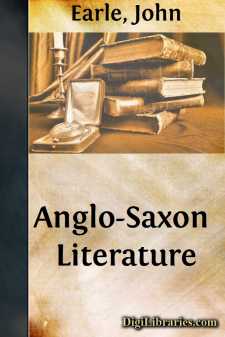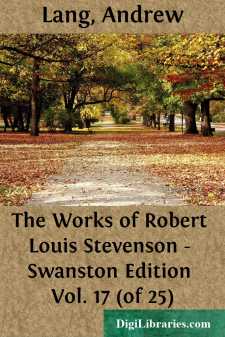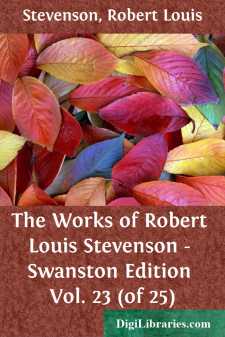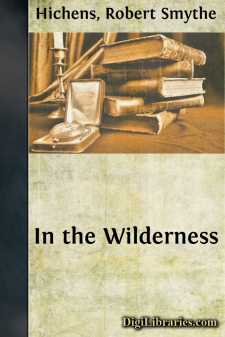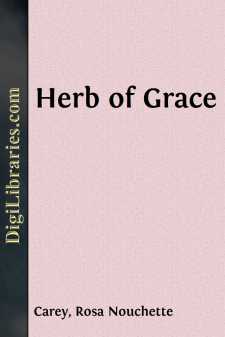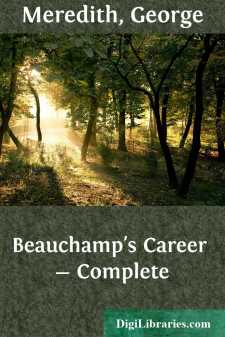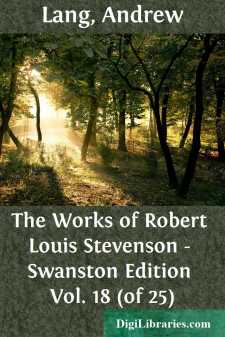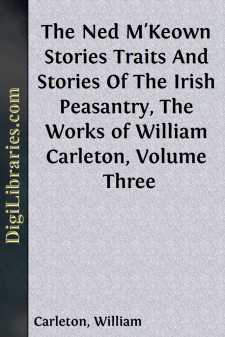Literary Collections
- American 84
- Ancient, Classical & Medieval 14
- Asian 1
- Australian & Oceanian 1
- Canadian 55
- Continental European 121
- English, Irish, Scottish, Welsh
- Essays 160
- General 24
- Letters 46
- Middle Eastern 1
English, Irish, Scottish, Welsh Books
Sort by:
by:
Nat Gould
CHAPTER I "WILL HE MARRY HER?" "Do you think he will marry her?" asked Harry Morby. "Does anybody know what he will do," replied Vincent Newport, discussing their host Alan Chesney, of Trent Park, a beautiful estate in Nottinghamshire, close to the Dukeries, Sherwood Forest, and the picturesque village of Ollerton. In the billiard room they had just finished a game of a hundred...
more...
by:
John Earle
CHAPTER I. A PRELIMINARY VIEW. Anglo-Saxon literature is the oldest of the vernacular literatures of modern Europe; and it is a consequence of this that its relations with Latin literature have been the closest. All the vernacular literatures have been influenced by the Latin, but of Anglo-Saxon literature alone can it be said that it has been subjected to no other influence. This literature was nursed...
more...
by:
Andrew Lang
CHAPTER I THE ELEMENTS OF DISCORD: NATIVE The story I have to tell is still going on as I write; the characters are alive and active; it is a piece of contemporary history in the most exact sense. And yet, for all its actuality and the part played in it by mails and telegraphs and iron war-ships, the ideas and the manners of the native actors date back before the Roman Empire. They are Christians,...
more...
INTRODUCTION The circumstances which have made me responsible for selecting and editing the correspondence of Robert Louis Stevenson are the following. He was for many years my closest friend. We first met in 1873, when he was in his twenty-third year and I in my twenty-ninth, at the place and in the manner mentioned at page 54 of this volume. It was my good fortune then to be of use to him, partly by...
more...
CHAPTER I Amedeo Dorini, the hall porter of the Hotel Cavour in Milan, stood on the pavement before the hotel one autumn afternoon in the year 1894, waiting for the omnibus, which had gone to the station, and which was now due to return, bearing—Amedeo hoped—a load of generously inclined travelers. During the years of his not unpleasant servitude Amedeo had become a student of human nature. He had...
more...
CHAPTER I Our adventures hover round us like bees round the hive when preparing to swarm.—MAETERLINCK. From boyhood Malcolm Herrick had been a lover of the picturesque. In secret he prided himself on possessing the artistic faculty, and yet, except in the nursery, he had never drawn a line, or later on spoilt canvas and daubed himself in oils under the idea that he was an embryo Millais or Turner....
more...
by:
George Meredith
CHAPTER I. THE CHAMPION OF HIS COUNTRY When young Nevil Beauchamp was throwing off his midshipman's jacket for a holiday in the garb of peace, we had across Channel a host of dreadful military officers flashing swords at us for some critical observations of ours upon their sovereign, threatening Afric's fires and savagery. The case occurred in old days now and again, sometimes, upon imagined...
more...
by:
Andrew Lang
CHAPTER I AN ISLAND LANDFALL For nearly ten years my health had been declining; and for some while before I set forth upon my voyage, I believed I was come to the afterpiece of life, and had only the nurse and undertaker to expect. It was suggested that I should try the South Seas; and I was not unwilling to visit like a ghost, and be carried like a bale, among scenes that had attracted me in youth and...
more...
by:
William Carleton
INTRODUCTION. It will naturally be expected, upon a new issue of works which may be said to treat exclusively of a people who form such an important and interesting portion of the empire as the Irish peasantry do, that the author should endeavor to prepare the minds of his readers—especially those of the English and Scotch—for understanding more clearly their general character, habits of thought,...
more...



